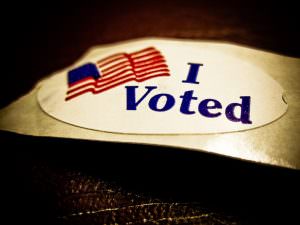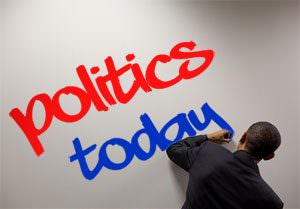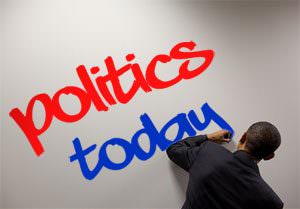The Gender Gap in Congress
Women will make up 19 percent of Congress when new members are sworn in in January. But given that females make up more than half of the population in this country, why isn't that number higher?
There’s no doubt women have come a long way in politics in the 20 years since the first “Year of the Woman” in 1993, when four females were elected to the U.S. Senate. Come January, a record number of women will occupy seats in Congress — including 20 female Senators.
A week after the election EMILY’s List, the political group dedicated to electing pro-choice female lawmakers, held a news conference recapping the results. “Can I just start by saying, we won!” Stephanie Schriock, the group’s president, said. “And we won across the board. It was a historic night.”
As much progress has been made, however, women will still make up just 19 percent of the new Congress. That’s a huge disparity when you consider that according to the latest U.S. census, more than half of the American population (50.7 percent) is female.
“Is that really enough to cheer about?” writes Kate Sheppard at Mother Jones. “Most of us would say yes, of course. But it does raise some fair questions about why we aren’t anywhere near parity yet. We still lag far behind the nations with the most parity — like Rwanda (whose legislature is 56.3 percent female), Andorra (53.6 percent female), and Sweden (45 percent female).”
So why the lag? According to research, a major reason is because men have more inclination to run for political office than women. More from Mother Jones:
The problem is not that people don’t vote for women. Earlier this year, a study by the Women & Politics Institute at American University found that women candidates do just as well as their male counterparts at the polls, and in other measurable areas like fundraising. Rather, the tongue-soundly-in-cheek-titled report “Men Rule” found that women are less inclined to run: “There is a substantial gender gap in political ambition; men tend to have it, and women don’t.”
The researchers surveyed nearly 4,000 people identified as potential candidates—community leaders, lawyers, activists, teachers—and found that while 62 percent of the male respondents said they had thought about running for office, only 46 percent of women had. Men were more likely to say that they were “qualified” or “very qualified” to run for office then women were. And even among men who said they didn’t think they were qualified to run, 55 percent said they had thought about it. Only 39 percent of women who felt they were not qualified had given thought to running.
The research shows that there are other reasons, however, that women decide not to enter the political arena.
The “Men Rule” research also raised some interesting points about other reasons women shy away from electoral politics. Many, they found, thought it was too contentious, or that they might face sexist attacks. They found that having two very high-profile women in the presidential race in 2008—Hillary Clinton and Sarah Palin—may have actually discouraged women from running, as the majority of women felt that Clinton and Palin received sexist coverage in the media, that too much attention was paid to their hair, makeup, and clothes.
So what can be done to get more women like 2012 election winners Elizabeth Warren, Tammy Baldwin, Heidi Heitkamp, Tammy Duckworth and Deb Fischer to seek office? Siobhan Bennett, the president of the Women’s Campaign Fund, has one solution.
“The most important thing is encouraging talented women to run, and helping them when they do,” said Bennett. “That single thing changes everything.”
— Posted by Tracy Bloom.
Your support matters…Independent journalism is under threat and overshadowed by heavily funded mainstream media.
You can help level the playing field. Become a member.
Your tax-deductible contribution keeps us digging beneath the headlines to give you thought-provoking, investigative reporting and analysis that unearths what's really happening- without compromise.
Give today to support our courageous, independent journalists.






You need to be a supporter to comment.
There are currently no responses to this article.
Be the first to respond.